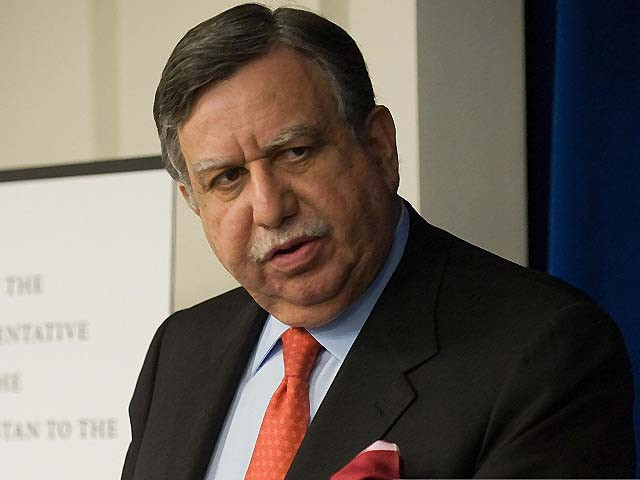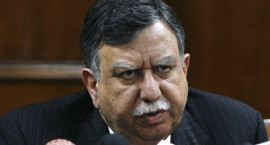
New Finance Minister Shaukat Tarin has made it clear that his first priority is to achieve a high growth rate of 6-7%. Pakistan is projected to achieve a growth of 1.5% this year.
Our last episode of relatively high growth, up from 4% in 2013 to 5.5% in 2018, was fuelled by the China-Pakistan Economic Corridor (CPEC) funding, which included both loans and investment.
A major contribution was the investment done in the electricity generation sector that saw the country go into an electricity surplus mode.
The theory was straight forward. While the country’s economic managers knew they are making a huge gamble by contracting a high current account deficit, this gamble would pay off in the shape of increased exports on the back of a reliable and cheaper electricity supply. In other words, a reduction in trade account will help reduce the current account gap.
As indicated by approximately $20 billion in current account deficit in 2019, and a growth rate of 1.9%, the economic managers lost the gamble. Their theory – that export earnings would compensate for the borrowed dollars – was proven long as exports remained sticky around $22 billion, while imports kept rising. The electricity demand failed to pick up.
With the record high current account deficit and a meagre growth rate, we reluctantly entered into the 22nd IMF programme, which gave us the well-known recipe – reduce fiscal deficit, liberalise exchange rate and increase power tariffs – to reduce the current account deficit and circular debt.
Pakistan did achieve some goals of the IMF programme, though the current account surplus, that we achieved, could also be attributed to import compression and remittance inflows.
After a visible progress on stabilisation, what should be the priorities of Shaukat Tarin as PTI’s fourth finance minister and what legacy he has received?
Tarin has inherited a current account surplus, but at the same time stagnant exports and an alarming level of public debt, which will limit his options. About 50% of next budget may be spent on repayment of loans. What should he do to achieve his growth targets?
If history is any guide, just two years to elections, and a popular perception of economic failure (despite achieving macroeconomic stability), a high growth rate can only be achieved by increased public spending – whether this is financed by borrowing or by investment.
Unfortunately, foreign direct investment has been falling for the last one year and despite registering improvement in the ease of doing business, Pakistan is not attracting fresh investments from abroad. Local investments through real estate mobilisation would not help in the current account, though it will help in growth. The only other short-term option is more borrowing – and re-ploughing public investment. This strategy is a recipe for disaster and will land us in the next IMF programme. The finance minister must not resort to more borrowing, and I dare say even for development for now.
In the short term, he will do well by adopting following three goals: cutting down wasteful expenditures, rationalisation of subsidies, and reducing tax rates.
The first two goals can generate around Rs1 trillion in savings and the third goal can increase disposable income of firms and households. This is all achievable in one fiscal cycle and will have positive effects on his growth targets.
In fact, he should promise a proportionate reduction in tax targets matching with the reduction in wasteful expenditures.
In the medium term, we need to increase exports. Here, PTI economic managers need to understand that their theory – devalue currency to make exports competitive and increase our share in global market – has failed as indicated by the stickiness of export numbers even as volumes showed progress.
Clearly, the lesson which should be learnt is that enhancing exports cannot be simply a function of one or two factors – it is a complex phenomenon, which should focus on capabilities, products and firms, rather than selection of winners by inefficient allocation of resources.
In the long term, and one hope that the government can lay the groundwork for this, we need a two-pronged strategy: productivity enhancement and wholesale reforms.
Incidentally, the Planning Commission witnessed two excellent presentations in the last two weeks, which directly addressed both points.
First presentation was made by the independent Economic Advisory Group, outlining an agenda for economic transformation by changing the incentive structure and resource allocation framework while building on the ideas of complexity in the product space.
If instead of supporting existing inefficient industries, we can redirect these resources – such as preferred lending – to efficient industrial activities across the board, growth will take place.
The second prong – reforms – is addressed by the PIDE Reform Agenda for Accelerated and Sustained Growth. While many of these ideas may not be implemented immediately, they do indicate a pathway to reform and growth. In order to leverage stabilisation, ie disciplined current and fiscal accounts, the journey of reforms must continue from macro to micro level. And all of these measures will help the growth target.
To give an example, we have reformed exchange rate, but still payment gateways are restrictive – PayPal is not allowed. PayPal will only help our own firms to get more business – and hence increase growth.
We have lived on borrowed growth for decades. It is time that Pakistan must switch to earned growth. Earned growth is possible through discipline, productivity and reforms, eventually discovering the right policy mix for growth and economic transformation.
The writer is the founder and executive director of PRIME Institute
Published in The Express Tribune, April 26th, 2021.
Like Business on Facebook, follow @TribuneBiz on Twitter to stay informed and join in the conversation.






1719053250-0/BeFunky-collage-(5)1719053250-0-270x192.webp)













COMMENTS
Comments are moderated and generally will be posted if they are on-topic and not abusive.
For more information, please see our Comments FAQ